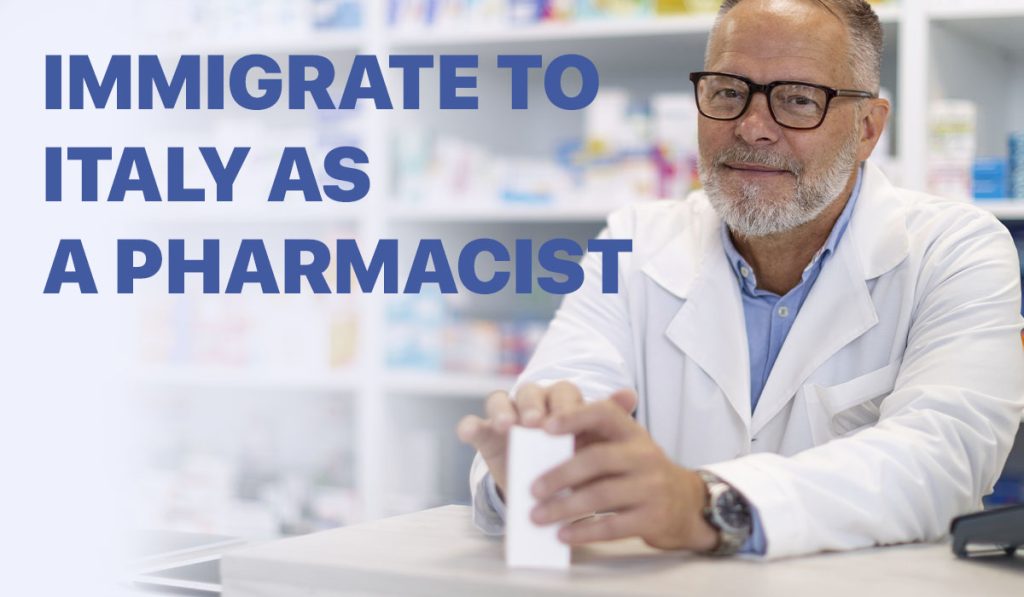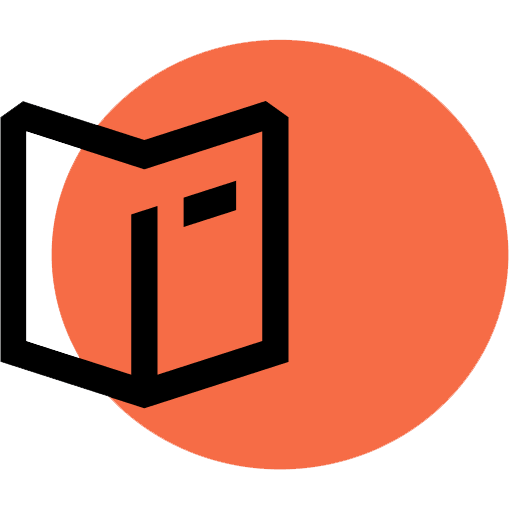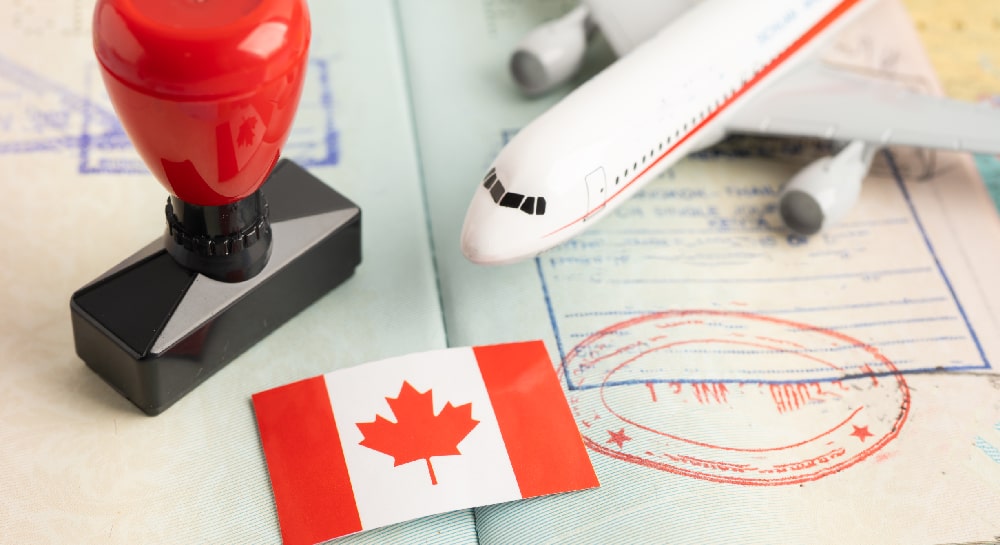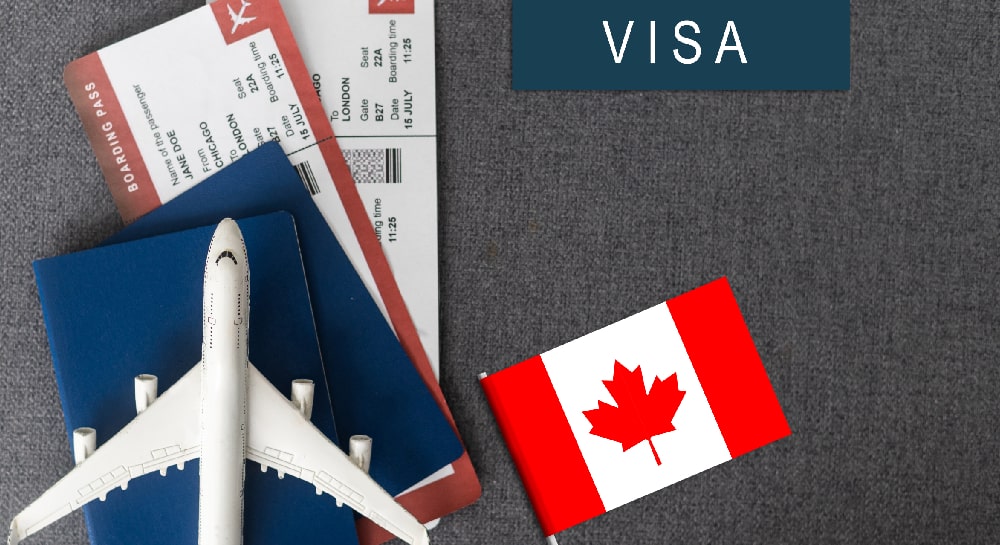Many people have always wanted to visit Italy because of the country’s legendary culture, breathtaking scenery, and delicious food. If you’re a pharmacist looking to move to Italy and further your career, you’ve come to the right place. This article will answer the question “How can I become a pharmacist in Italy? “and walk you through the steps and prerequisites to immigrate to Italy as a pharmacist to ensure a smooth transfer and a fruitful professional journey in this beautiful European country.
How to Immigrate to Italy as a Pharmacist?
Now, the question is: “How to become a pharmacist in Italy?” Let’s answer it. A number of conditions and processes must be met to immigrate to Italy as a pharmacist. To get you started, here is a basic overview:
Step 1. Eligibility and Requirements
Before you begin the procedure and immigrate to Italy as a pharmacist, you should match the minimum requirements. These normally include a valid passport, no criminal record, and good health. Possessing the appropriate credentials, such as a pharmacy degree recognized by Italian authorities, is also crucial for finding work as a pharmacist in Italy.
Step 2. Language Proficiency
In Italy, speaking Italian fluently is typically required for employment, especially in the pharmaceutical industry. You might consider enrolling in a school or program if you want to learn Italian or improve your existing knowledge. Proof of Italian language ability, such as the CILS (Certificazione di Italiano como Lingua Straniera) or CELI (Certificato di Conoscenza della Lingua Italiana), may also be required, depending on your country and the type of visa you’re applying for.
Step 3. Professional Recognition
The Italian Ministry of Education and the Italian Pharmacy Council (Ordine dei Farmacisti) must approve your pharmacy degree and qualifications. Providing transcripts, degrees, and other documents to back your claims up is often required. To meet the requirements of the Italian pharmacy industry, you may need to take some additional classes or tests.
Step 4. Work Visa
You need a valid work visa to work in Italy legally. The next stage is to find a job in a healthcare setting in Italy, preferably a pharmacy. You may require a documented job offer or contract from your prospective employer to apply for a work visa at your home country’s Italian Embassy or Consulate. The time required for this process can vary widely but often ranges from weeks to months.
Step 5. Residence Permit
After entering Italy on a work visa, you have limited time to apply for a residence permit (permesso di soggiorno). You must submit paperwork proving your housing and work situation to complete the application. For your employment in Italy, you must keep your residence permit valid.
Step 6. Join the Italian Pharmacy Council
To immigrate to Italy as a pharmacy and practice in Italy, you must register with the local Pharmacy Council (Ordine dei Farmacisti) as soon as possible after your arrival. This is a mandatory requirement for any Italian pharmacist seeking to practice in the country legally. To join, you must prove your qualifications by submitting your resume, cover letter, relevant test scores, and legal right to work and live in the country.
Step 7. Continuing Education
If you want to immigrate to Italy as a pharmacist successfully, you must keep up with all the latest news in your industry. To improve your qualifications and job prospects, you should consider getting more education, signing up for workshops, and attending conferences.
Step 8. Job Search
Use websites like “InfoFarmacia” and “Farmalavoro” to find available pharmacy technicians and other positions in Italy. Connecting with other Italian pharmacists and medical experts through professional networking events is also helpful.
Step 10. Settling In
As you begin your new life in Italy, learning about the country’s traditions, laws, and medical care system is important. Ensure you understand your tax and legal responsibilities and look into expat or community organizations for advice and assistance.

In-Demand Pharmacist Job in Italy
- Community pharmacist
- Hospital pharmacist
- Clinical pharmacist
- Industrial pharmacist
- Research pharmacist
- Regulatory affairs pharmacist
- Pharmaceutical sales representative
- Pharmacist consultant
- Academic pharmacist
- Pharmaceutical quality assurance specialist
Where Can Pharmacists Work in Italy?
- Community pharmacies
- Hospitals and clinics
- Pharmaceutical industry
- Research institutions
- Regulatory agencies
- Academic institutions
- Pharmaceutical sales and marketing
- Government health departments
- Home healthcare services
- Nursing homes and long-term care facilities
What is the Best Place to Work as a Pharmacist in Italy?
If you’re looking for a job as a pharmacist in Italy, where you should look depends on your priorities. It’s common to find better pay and more career chances in larger cities like Milan and Rome. Consider moving to a location with stunning scenery, like Tuscany or Umbria, if you seek a work-life balance and a great quality of life. You must make a decision that fits your professional aspirations and priorities.
Where Do Pharmacists Get Paid the Most in Italy?
Northern Italy (containing Milan, Turin, and Bologna) and some central regions, like Rome and Florence, pay their pharmacists more than the rest of the country. Expenses related to necessities and medical care are major factors in the rise of median salaries. Pharmacists in Milan, the metropolis of Lombardy, are paid among the most competitively in Italy.
However, compensation can change based on the specific drugstore, the pharmacist’s experience, and other considerations. Local job postings, wage surveys, and pharmacy-specific professional associations are the best places to learn about pharmacy salaries.
How Much Do Pharmacists Get Paid in Italy?
There is a typical salary of 4,900 EUR for a pharmacist in Italy. There is a range of salaries between 2,550 and 7,500 euros.
- Pharmacists with less than two years of experience earn approximately 2,900 EUR.
- A pharmacist with two to five years of experience earns about 3,890 EUR.
- Pharmacists with five and ten years of experience earn 5,050 EUR.
- Professional pharmacists between ten and fifteen years earn a salary of about 6,120 EUR.
- If the pharmacist has fifteen to twenty years of experience, then the salary is 6,690 EUR.
- Pharmacists with twenty or more years of experience earn a salary of 7,030 EUR.
Fees and Costs to Immigrate to Italy as a Pharmacist
Here’s a general overview of the fees and costs associated with immigrating to Italy as a pharmacist:
- Credential Evaluation. Depending on the complexity of the evaluation, the price of having your international pharmacy credentials examined in Italy might range from €200 to €500 or more.
- Language Proficiency Tests. The cost of learning Italian varies greatly based on the length and complexity of the program. The average cost of a proficiency test, such as the CILS or CELI, is between €150 and €250.
- Visa and Residence Permit. The cost of applying for a visa might range from €50 to €150, while the cost of a residence permit will depend on the type of permit you need and your country of origin. These costs could be as high as $200.
- Membership in the Italian Pharmacy Council. The Italian Pharmacy Council has yearly membership fees ranging from €200 to €500 or more, depending on the location.
- Relocation Costs. The cost of going to Italy will vary according to where you come from and what you do there. The total you spend on lodging will differ widely depending on factors like location and style of accommodation sought. The cost of getting settled in, from groceries to utility hookups, can vary substantially.
- Cost of Living. The cost of living varies widely across Italy. The average monthly expenses for a single individual in larger cities like Milan and Rome are between €800 and €1,500 or more, which doesn’t include rent.
- Healthcare Insurance. The cost of health insurance premiums varies greatly from person to person and plan to plan. Healthcare premiums often run between €50 and €200 per month.
- Continuing Education. The price of a professional development or continuing education course can range from a few hundred to several thousand euros, depending on the course and the provider.
Immigrate to Italy as a Pharmacist: Let’s Recap
Moving to Italy as a pharmacist is a worthwhile endeavor that can lead to an exciting and diverse professional life. The information in this manual will help you realize your ambition of working and living in Italy.
FAQs
Italian proficiency is required for pharmacists in Italy. You may need to pass a language competency exam for licensing.
Some residence permits can be applied for without a job offer, but having one might ease the procedure.
Italy offers pharmaceutical career progression, notably in research and clinical settings.
Pharmacy salaries in Italy vary by experience and location. On average, pharmacists earn good incomes that reflect their city’s cost of living.
It usually takes many months to complete all the licensure steps, including language proficiency exams and academic evaluations.
How useful was this article?
Click on a star to rate it!
Average rating 4 / 5. Vote count: 18
No votes so far! Be the first to rate this article.
- Author
- Max-B.
- October 11, 2023






